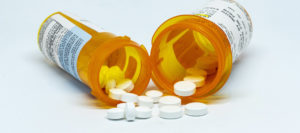
Exploring Effective Drug Rehab Programs in Massachusetts
Effective Drug Rehab Programs in Massachusetts: An Overview
Substance abuse is complicated. Yet, drug rehab programs can save lives. For those in Massachusetts, many choices exist. Residential programs deliver round-the-clock care for those fighting addiction. Outpatient services provide flexibility while delivering comprehensive treatment plans. Holistic methods, such as yoga and meditation, can help in healing. It’s key to research and find a plan that fits individual needs.
Pro Tip: Look into aftercare services for sobriety maintenance after treatment.
Inpatient Drug Rehab Programs
To fully overcome substance abuse, you need effective drug rehab programs. Inpatient drug rehab programs can be the answer you are looking for. Discover the types of inpatient drug rehab programs available and the many benefits they offer, including the key sub-sections.
Types of Inpatient Drug Rehab Programs
Drug addiction is a global crisis, and inpatient rehab programs are one of the solutions. There are 6 types:
- Traditional inpatient rehab includes detox, group therapy, individual counseling, and medical management.
- Holistic programs use natural methods like yoga, meditation, and acupuncture.
- Dual Diagnosis deals with mental health disorders.
- Luxury and Executive facilities offer high-end amenities.
- Residential rehab centers offer longer stays with comprehensive support.
- Apart from these, personalized courses may be created.
When someone is battling substance abuse disorder, choosing the right rehab center is essential for success. It’s important to understand the different types of rehabs before selecting the best option that meets individual needs for long-term sobriety.
Benefits of Inpatient Drug Rehab Programs
Inpatient drug rehab programs provide a secure environment for those struggling with addiction. Patients live on-site and get comprehensive care, including medical help and therapy sessions. This approach encompasses both emotional and physical addiction facets.
- The first advantage is constant attention from medical professionals who understand addiction complexity. Patients can talk to doctors, nurses, therapists and other specialists to address their special needs.
- The second perk is the community vibe present in inpatient programs. Individuals discuss similar challenges and share experiences to aid their recovery.
- The third benefit is a range of therapies customised for each patient. From cognitive-behavioral treatment to art therapy, inpatient rehabs offer diverse options.
On top of that, some inpatient services provide dual diagnosis treatment for those with co-occurring mental health issues.
If you wish to beat addiction, an inpatient program is ideal. Don’t wait any longer – reach out now and embark on a brighter future without substance abuse.
Outpatient Drug Rehab Programs
To explore effective outpatient drug rehab programs in Massachusetts, delve into this section on outpatient drug rehab programs. Learn about the different types of outpatient programs provided by rehab centers, and the benefits they offer.
Types of Outpatient Drug Rehab Programs
Outpatient drug rehab programs offer various types of treatment options for individuals struggling with addiction. Flexibility is given to those who cannot commit to full-time residential treatment, allowing them to get care while still doing their daily duties.
Such programs might include:
- Intensive Outpatient Programs (IOPs);
- Partial Hospitalization Programs (PHPs);
- Standard Outpatient Programs;
- Support Groups, and
- Cognitive Behavioral Therapy (CBT).
The structure of each program varies based on the patient’s needs. Some may even incorporate holistic therapies like yoga or acupuncture.
Benefits of Outpatient Drug Rehab Programs
Outpatient drug rehab programs are an effective way to treat addiction. They provide great benefits, making them a popular choice for those seeking help.
- Flexible schedules: You can attend treatment while managing daily responsibilities like work or school.
- Lower costs: Compared to inpatient programs, outpatient is often more affordable. No room and board or 24-hour care.
- Support systems: Access to counseling, group therapy, and peer support groups. These resources help stay sober long-term.
Plus, there are special programs for certain populations. For example, women, teens, and LGBT individuals. Treatment plans are tailored to their unique needs and experiences.
Holistic Drug Rehab Programs
To explore effective drug rehab programs in Massachusetts with a holistic approach, delve into the section of holistic drug rehab programs. In this section, you will learn about the different types of holistic drug rehab programs and the benefits they offer.
Types of Holistic Drug Rehab Programs
Holistic drug rehab programs offer a different approach to addiction treatment, one that addresses the physical, emotional and psychological aspects of addiction. Treating the whole person, rather than just their addiction, is the focus. These programs can provide individualized care and include:
- Yoga and Meditation-Based Programs, to relax and reduce anxiety.
- Acupuncture-based Programs, using small needles to relieve tension and stimulate the nervous system.
- Nutrition and Fitness Programs, to regulate nutrition and improve health.
- Art Therapy Programs, for creative expression.
- Equine-Assisted Therapy Programs, to develop empathy and trust.
John was addicted to recreational drugs for years. He decided to try a holistic healing approach at a renowned center. Herbal remedies, acupuncture, meditation and improved nutrition helped him to overcome his addiction. He is living proof that supplemental techniques significantly increase the chances of successful rehabilitation from substance abuse.
Benefits of Holistic Drug Rehab Programs
Holistic drug rehabs provide a more comprehensive approach to beat addiction. Not only do they tackle physical symptoms, but also mental and spiritual aspects. Treating the person as a whole leads to better outcomes and long-term healing.
Benefits of holistic drug rehabs include:
- Personalized treatment plans. They take into account each individual’s specific needs and circumstances. This allows for a tailored plan to address physical, mental and spiritual health.
- Alternative therapies. Acupuncture, yoga, meditation, and other therapies can reduce stress and increase well-being.
- Nutrition focus. Good nutrition is key for addiction recovery. Holistic drug rehabs offer nutrition counseling and healthy eating plans.
- Mental health help. Addiction often goes hand-in-hand with depression or anxiety. Therapies and counseling help treat these issues.
- Community involvement. Group therapy sessions offer peer support and a sense of belonging.
No one program is perfect for everyone. But holistic drug rehabs offer many benefits for those trying to overcome addiction in a more comprehensive way. With the right care and support, recovery is possible.
If you or someone you know is struggling with addiction, don’t hesitate to get help. A holistic drug rehab program could be the answer.
12-Step Drug Rehab Programs in Massachusetts
To explore effective drug rehab programs in Massachusetts, dive into the ’12-Step Drug Rehab Programs. These programs are designed to provide an effective approach to overcoming substance addiction. This section has two sub-sections – ‘Types of 12-Step Drug Rehab Programs’ and ‘Benefits of 12-Step Drug Rehab Programs’, which offer unique solutions to individuals dealing with substance abuse.
Types of 12-Step Drug Rehab Programs in MA
Drug addiction can be an immense challenge. Thankfully, there are 12-step rehab programs to help people in need. These programs are designed to give individuals a secure space to confront their addiction, learn new skills, and develop self-esteem.
Examples of 12-Step Drug Rehab Programs include:
- Inpatient Rehab – Round-the-clock care and supervision with daily therapy, counseling, education, and group meetings.
- Outpatient Rehab – Access to therapy, group meetings, and guidance from professionals while living at home.
- Faith-based Rehab – Utilizing religious or spiritual beliefs to aid in recovery.
- Holistic Rehab – Treating the “whole person” with alternative therapies such as meditation, yoga, etc.
- Luxury Rehab – Lavish amenities like spa treatments or gourmet meals combined with traditional treatment.
Many 12-step programs also provide family counseling or aftercare support. It’s important to select the right program that fits one’s needs by considering factors such as cost, location, and facility availability.
Bill Wilson is credited for founding Alcoholics Anonymous in 1935 following his own battle with alcohol addiction. This program has since helped millions of people worldwide overcome addictions. Other organizations like Narcotics Anonymous have adopted the 12-steps concept.
To conclude, 12-Step Drug Rehab Programs are essential in helping people manage addictions and mental health issues. It’s necessary to research before selecting the best program for an individual.
Benefits of 12-Step Drug Rehab Programs in MA
12-Step Drug Rehab Programs offer many advantages to people battling addiction. This program promotes a structured plan, helping in a seamless transition to sobriety.
- Peer Support: This type of program provides an atmosphere of aid, which encourages individuals to talk about their problems and feelings with individuals who can relate.
- Holistic Treatment Method: It looks beyond the addiction, assessing the mental and emotional health of the person too.
- Long-term Results: It provides tools and aptitudes to remain on the road to recovery, creating long-term modifications.
Customized care, as per the individual’s particular conditions, is given to clients in this program.
A study published in the Journal of Substance Abuse Treatment suggested that those taking part in 12-step rehab had more abstinence rates than those who did not.
Cognitive Behavioral Therapy (CBT) in Drug Rehab Programs
To understand how Cognitive Behavioral Therapy (CBT) can be a solution to overcoming substance abuse in drug rehab programs, explore its types and benefits. Types of CBT in drug rehab programs can vary depending on the provider, and each presents unique benefits for the patient. By incorporating CBT into drug rehab programs, patients can gain crucial skills that will help them manage and overcome their addiction.
Types of CBT in Drug Rehab Programs
CBT is an effective approach used in drug rehab programs. Different types of CBT are utilized to aid individuals with addiction and substance abuse-related issues. Such as Dialectical Behavior Therapy (DBT), which emphasizes acceptance and mindfulness, plus behavioral therapy tactics. With Motivational Enhancement Therapy (MET), it focuses on reinforcing an individual’s motivation and commitment to changing behaviors to achieve successful treatment outcomes. Cognitive Processing Therapy (CPT) is mainly for those with PTSD and substance abuse. It assists by recognizing negative thoughts associated with past trauma and lets individuals switch to more positive thoughts. Cognitive-Behavioral Couples Therapy involves the partner in the treatment. It helps couples tackle interpersonal issues that may be linked to substance use disorder. Also, the MATRIX model combines group therapy, relapse prevention, family education, and contingency management to reduce substance use and promote long-term recovery.
CBT in drug rehab programs provides an evidence-based foundation for developing coping skills to prevent relapse and encourages personal growth. Each type of CBT has a different targeted outcome and may be suitable for various personalities.
CBT has been used effectively around the world for numerous addictions. Ellen Battista’s story shows how DBT aided her in overcoming drug addiction after years of dealing with mental health issues.
Overall, understanding the different types of CBT can give an insight into the various approaches used by professionals during drug rehab treatment planning.
Benefits of CBT in Drug Rehab Programs
Cognitive Behavioral Therapy (CBT) is an important part of drug rehab programs. It helps people identify and take control of negative thoughts and actions related to their addiction. Let’s discover the Benefits of CBT in Drug Rehab Programs…
- Gets to the root of addiction: CBT helps patients find out what causes their addiction and how to deal with it.
- Improves coping skills: With CBT, patients can learn to manage triggers and stressors better, reducing the chance of relapse.
- Promotes self-reflection: This therapy encourages people to think about their attitudes and beliefs, helping them make positive lifestyle choices.
- Builds healthy relationships: CBT teaches patients communication skills and healthy habits for long-term recovery outside the rehab center.
- Fosters personal growth: CBT helps patients gain skills such as patience, resilience, and disciplined thinking, which leads to personal growth.
- Works with other therapies: CBT is a great fit with other therapies, like medication-based treatments, and can quickly improve mental health, especially depression and anxiety.
CBT goes beyond addiction-related symptoms to help people find more satisfaction in life. Pro Tip: Make sure to choose a good therapy center or certified counselor who knows how to use CBT for better patient outcomes.
Dual Diagnosis Drug Rehab Programs
You need dual-diagnosis drug rehab programs with specialized treatment to address substance abuse while dealing with underlying mental health issues. This section in ‘Overcoming Substance Abuse: Exploring Effective Drug Rehab Programs in Massachusetts’ focuses on various types of dual diagnosis drug rehab programs and their benefits.
Types of Dual Diagnosis Drug Rehab Programs
Dual-diagnosis drug rehab programs aim to treat people with addiction and mental health issues. Here are 4 types:
- Integrated Treatment Programs: The same team treats both addiction & co-occurring disorders.
- Sequential Treatment Programs: Addiction is addressed first, then mental health.
- Parallel Treatment Programs: Treat addiction & mental health simultaneously, but with different teams.
- Maintenance-Based Programs: Medication therapy & counseling to prevent relapse.
Each program has its own approach & goals. Dual diagnosis rehab has proven more effective than traditional methods. It looks at physical & psychological aspects of abuse & helps people recover long-term.
Studies show roughly 50% of substance abusers have mental health issues too. So, treating both is key to success.
Recently there has been more awareness about dual diagnosis rehab. Healthcare professionals now understand the need to identify any psychiatric conditions in patients for better results.
Benefits of Dual Diagnosis Drug Rehab Programs in MA
Dual Diagnosis Drug Rehab Programs support people who struggle with addiction and mental health problems. The programs work to treat both conditions together, leading to better outcomes and a better life. They focus on the main reasons for addiction, like depression, anxiety, and other mental health issues.
The programs have personalized plans for each person. The environment is safe and encouraging for those in recovery. Plus, access to therapies like medication management, group therapy, cognitive behavioral therapy, and more is provided. The programs give people the tools and knowledge to stay sober and manage their mental health.
These programs educate people and their families about addiction and mental health, which breaks down stigmas. Dual Diagnosis Drug Rehab Programs were created due to the need for help with both addiction and mental illness. More awareness about the connection between these conditions has led to more rehab centers providing complete treatment options for both.
Choosing the Right Drug Rehab Program in Massachusetts
You need to consider some important factors to choose the right drug rehab program in Massachusetts with the best chance of success for overcoming substance abuse. Ask the right questions to get the information you need. In this section, we explore the key factors to consider and questions to ask when selecting a drug rehab program in Massachusetts.
Factors to Consider
When on the hunt for a drug rehab program, there are many important factors to bear in mind. So, we created a table with the key considerations.
| Factor to Consider | Description |
| Location | The spot of the facility is essential. It can impact how easily family and friends can visit and the atmosphere during your recovery. |
| Treatment Options | Check the types of treatments offered at each facility. Determine which will work best for you. |
| Credentials/ Accreditation | Look for a facility that is licensed or approved by a trustworthy organization. This guarantees they follow specific standards of care and have certified personnel. |
| Costs & Insurance Coverage | The fees vary depending on the area and services provided. Find out what is included in the cost of treatment, and potential insurance coverage options. |
Everyone’s journey to addiction recovery is one-of-a-kind. Therefore, some people may require more assistance such as aftercare services. This includes ongoing counseling, peer support groups, career guidance or vocational training to sharpen success skills.
It’s crucial to do thorough research when selecting a rehab center. I recall my cousin’s ordeal with drug addiction. She went through multiple rehabs, before finding lasting recovery at one particular facility. She did a lot of research beforehand.
Questions to Ask
When searching for a drug rehab program in Massachusetts, it is essential to ask the right questions. To make an informed decision, here are some key things to inquire about:
- What type of treatment programs does the center offer?
- Do they have qualified staff and counseling services?
- What are the costs and does insurance cover them?
Ask about those options if you need specialized care such as dual-diagnosis or gender-specific. And, don’t forget to inquire about aftercare services for a successful recovery.
Be sure to choose a facility with accreditation from reputable organizations like The Joint Commission and has high success rates. Karen N. is an example – she found an excellent drug rehab program by asking questions about treatments and staff qualifications. This helped her find a quality program that facilitated her long-term recovery.
Overcoming Substance Abuse in Massachusetts
Overcoming substance abuse is a challenge. Massachusetts has many rehab programs that can suit different individuals. Joining a rehab program is the start of breaking the cycle of addiction and gaining control back.
These programs use evidence-based treatments, such as medication-assisted treatment, behavior therapy, and counseling. Clinicians help patients find mental health issues that may be causing the substance use disorder. Also, many of these rehab centers focus on physical health through fitness and nutrition.
Everyone’s journey to recovery is different. So, these programs use individualized approaches to fit each person’s situation. Support groups like AA or NA can help too.
Who is Northstar Recovery Center in Massachusetts?
NorthStar Recovery Center, nestled in the idyllic setting of Southborough and Springfield, in the heart of Massachusetts, provides premier rehabilitation services from Alcohol Treatment to a curated continuum of care that encompasses PHP, IOP, and OP programs.
Beginning the journey of recovery can be daunting, yet choosing the best rehab near you is an essential first step. Uniquely positioned to provide exceptional service, NorthStar Recovery Center draws on years of expertise to offer remarkable alcohol treatment in MA, and has become a beacon for those seeking help near Boston. Here, recovery isn’t just physical; a holistic approach is emphasized, addressing not only body, but mind and spirit as well. The center’s commitment to fostering a comfortable yet focused environment makes it stands out as a luxury rehab near you.
Partial Hospitalization Program (PHP) is a robust level of care offered. As you immerse yourself in intensive therapy and learn coping mechanisms for addiction, the bonds formed between peer groups and the overwhelming support provided by the experienced staff at NorthStar prove indispensable. This model of treatment allows patients to maintain a sense of independence while engaging in structured treatment, thereby making healing a transformative experience.
Resilience is built at the Intensive Outpatient Program (IOP). NorthStar understands that individuals in recovery need to have a flexible schedule that accommodates work, school, and family life. Incorporating these into a comprehensive, flexible IOP model distinguishes NorthStar among other alcohol treatment centers near Boston.
Outpatient Program (OP) is notable in NorthStar’s repertoire, providing structured treatment that’s less intensive, yet remains grounded in the commitment to long-term recovery. The OP works around the client’s schedule, gradually reducing the treatment hours while supporting the transition back to everyday life. This makes NorthStar’s OP one of the best options for those seeking rehab services in Massachusetts.
Furthermore, alcohol counseling is offered as an essential ingredient for recovery at NorthStar. Their seasoned counselors provide an empathetic, non-judgmental space for discussing feelings, fostering emotional growth, and contributing to the healing journey of patients in recovery.
NorthStar Recovery Center, in Southborough and Springfield, Massachusetts, is dedicated to providing quality alcohol treatment options. The center’s appeal as a luxury rehab near you comes from its holistic approach to recovery. Through its PHP, IOP, and OP programs, NorthStar provides practical mechanisms to combat addiction and fosters a warm, supportive community of recovery, working closely with individuals to ensure they are empowered in their journey toward sobriety. If you’re seeking the best rehab for alcohol treatment near Boston, look no further than NorthStar Recovery Center. Their comprehensive treatment plan, exceptional staff, and commitment to their patients’ well-being make them the ideal destination for those seeking alcohol rehab in Massachusetts.
Contact Northstar Recovery Center Today!
Northstar Recovery Center is at the forefront of innovative addiction recovery trends due to its holistic, personalized, and cutting-edge approaches. It’s time for you to make the courageous step towards recovery.
This center integrates leading-edge technologies into its treatment modalities, offering clients an unparalleled recovery experience. You’re invited to explore the groundbreaking programs that may change your life.
Beyond standard treatments, Northstar invests heavily in state-of-the-art tech innovations like virtual reality therapy, enhancing the recovery journey. Think about how immersive therapy could revolutionize your healing process.
Northstar’s commitment to tailored treatment plans ensures each individual’s unique journey is understood and catered to. Don’t wait another moment; contact our compassionate counselors to start your personalized healing journey.
The wellness focus extends beyond the individual to include family involvement, offering family therapy sessions. If a loved one’s addiction has impacted you, join our family programs because healing is better when it includes everyone.
Mindfulness-based therapy, yoga, and meditation are integral parts of the Northstar experience, aligning the body, mind, and spirit for comprehensive healing. Take the chance to experience growth and tranquility in your recovery.
Northstar’s Aftercare Program, a unique offering, ensures the transition back into everyday life is seamless and supported. Be a part of our community, where you’ll find continuous care and lasting connections.
The dedication to evidence-based treatments, personalized care, continual support, and ongoing innovation rightfully cements Northstar Recovery Center as a leader in the addiction recovery field. Join a partnership that offers more than treatment; it offers a chance at a renewed life.
Call Northstar Recovery Center today, and take the first step on your journey towards recovery, wellness, and a brighter, healthier future. You deserve the best, and Northstar is ready to deliver. Join us, and let’s revolutionize recovery together.







 One of the most widely prescribed medications for anxiety is
One of the most widely prescribed medications for anxiety is 